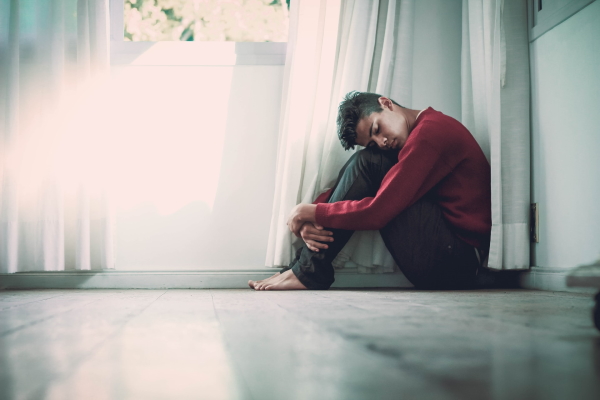
In Australia, suicide is the leading cause of death among persons aged between 15 to 49 years. Every year approximately 3,000 Australians end their lives, which is an average of about 8 people a day. This is more than persons dying on the roads each year.
Statistics also show that at some stage in their life about 1 in 8 Australians have seriously considered suicide. Suicide impacts all who are left behind – families, friends and whole communities. The after-effects of such a tragic event are traumatic and long lasting. And the last thing a grieving family needs to deal with during that period is a suicide cleanup.
Suicide cleanup involves dealing with biohazards, dangerous biological remnants and odour removal. Put your trust in Bio Hazard Services Pty Ltd with a task that needs to be handled properly. We have the extensive experience in the biohazard cleaning industry and the training to clean the scene thoroughly. Among our various services we specialise in Biohazard Cleaning, Decontamination and Disinfection, Meth Cleaning, as well as Damage Restoration Services.
Some factors that directly contribute to suicide.
Most people struggle to understand the reasons that lead to a suicide. There may be no single reason as to why a person commits suicide. Though the causes of suicide can be complex, here are a few factors to help identify if you or a loved one are struggling with the aftermath of a suicide or having suicidal tendencies.
Socio-economically disadvantaged.
The highest rate of suicide occurs in the lowest socio-economic population and most disadvantaged areas. It is 2.2 times that of those living in the highest socio-economic areas.
In custodial environments.
Young persons or adults who have been in or quite recently released from custodial settings are at risk of having suicidal tendencies.
Previously suicidal persons.
The strongest predictor for future suicidal behavior is if the person has a previous history of suicide attempts. The risk of suicide after a suicide attempt can persist for a very long time after the initial attempt.
Suicide re-attempts are also more likely diagnosed with certain type of personality disorders.
Persons already bereaved by another suicide.
Bereavement by the recent suicide of a close friend or a relative (blood-related or not) is a risk factor for suicide.
Adults have a higher probability of attempting suicide when bereaved by another suicide than those bereaved by sudden naturally caused deaths.
Death of an immediate family or sibling.
There is an increased risk of suicide after the death of a close family member or sibling. The tragic event can trigger grief and depression. This also occurs due to shared genetics. Shared early-life experiences of siblings in the same family have a strong impact of the person.
When someone has been married for many years, the loss of a partner can bring on severe depression.
People living rurally or in remote areas.
People who live in rural areas or remotely are more likely to die from suicide than people who live in major cities. This can be mostly due to untreated mental illness and the social stigma of seeking help for mental health in small communities, stress caused by natural disasters and other adversities, financial insecurity and loneliness.
You can get help and get through this.
Suicide has a devastating and far reaching impact. Finding the right support in time can help get you through challenges that are too hard to deal with on our own.
If you or someone you know has been dealing with the aftermath of a loved one’s suicide it is important to take action as soon as possible. Connect with support services to speak about it. They are experienced in ways to respond following a suicide and can assist anyone affected.
Anyone struggling with suicidal thoughts should get in touch with services that specialise in suicide prevention. They can offer immediate counseling, as well as further support and advice. Ask for help from a trusted friend, family member or mental health professional.
Let the experts handle suicide cleanup.
If you’re faced with cleaning up after a suicide, Bio Hazard Services Pty Ltd is here to help. When a loved one commits suicide there is a lot for the family to deal with. It is important to avoid any further trauma to yourself and your loved ones. Allow our professional team to take care of the whole cleanup and decontamination process for you so you can work through your own grief.
At Bio Hazard Services, we understand the pain and the difficulty that results from a suicide. We can safely clean up the scene and get your place back to normal. We will restore your property with care and compassion. We always treat the family in a respectable way. Our emergency specialised services are available 24/7 throughout Sydney, Blue Mountains, and all Metro and Regional locations NSW-wide. Contact us here, email or call us on 0490439319.
